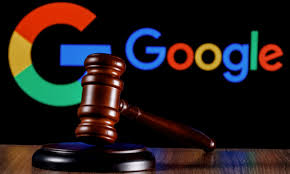A User’s Odyssey: Navigating the Sea of Google Privacy Lawsuits
In today’s digital age, our online privacy is a constant concern. At the forefront of this discussion stands Google, a tech giant amassing vast amounts of user data. Recent court decisions denying class action status to privacy lawsuits against Google have left many users wondering: where do we stand, and what are our options? This comprehensive guide delves into the rising tide of individual privacy lawsuits against Google, explores the implications of denying class action certification, and offers strategies for individuals to protect their privacy and seek compensation for potential data breaches.
A Breach of Trust: Understanding the Allegations Against Google
Several lawsuits against Google allege violations of user privacy through various practices, including:
-
Unfettered Data Collection: Lawsuits claim Google collects excessive amounts of user data beyond what’s necessary for its services, raising concerns about user profiling and targeted advertising.
-
Location Tracking: Allegations surround Google’s collection of user location data even when location services are disabled on devices, raising privacy and security concerns.
-
Incognito Mode Misconceptions: Lawsuits argue Google misleads users about the level of privacy offered by incognito mode, which may still track and collect user data.
-
Data Sharing Practices: Concerns exist regarding the extent to which Google shares user data with third-party companies and the lack of transparency surrounding these practices.
These allegations highlight the importance of user privacy and the growing desire for greater control over personal data collection and use.
A Class Divided: The Impact of Denying Class Action Certification
Many privacy lawsuits filed against Google sought class action status. A successful class action allows a single lawsuit to represent a large group of similarly affected individuals. However, recent court decisions have denied class action certification in some Google privacy lawsuits. This has several implications:
-
Individualized Issues: Courts might reason that privacy concerns and the extent of data collection can vary significantly between users, making it difficult to apply a uniform outcome in a class action setting.
-
Complexity of Damages: Calculating damages for each individual user in a large class can be complex and time-consuming, disincentivizing class action certification.
-
Management Challenges: Administering a class action lawsuit with potentially millions of individuals can be logistically difficult and expensive.
While denying class action certification presents challenges, it doesn’t necessarily mean individual users have no recourse.
Charting Your Course: Strategies for Individual Legal Action
Despite the hurdles of class action lawsuits, individuals can still pursue legal action against Google for alleged privacy violations. Here are some strategies to consider:
-
Consulting an Attorney: An attorney specializing in privacy law can evaluate your specific situation and advise you on the feasibility of pursuing a lawsuit against Google.
-
Gathering Evidence: Document your Google privacy settings, track your online activity, and keep records of any communications regarding data collection practices.
-
Understanding Your Rights: Familiarize yourself with relevant privacy laws and regulations, such as the California Consumer Privacy Act (CCPA) or the General Data Protection Regulation (GDPR).
-
Joining Forces: While class action certification might be denied, exploring options to consolidate individual lawsuits into multi-district litigation (MDL) can improve efficiency and bargaining power.
Q: Does denying class action certification mean I can’t sue Google for privacy violations?
No. While class action lawsuits offer potential benefits like increased efficiency and collective bargaining power, the denial of class action certification doesn’t preclude individual legal action. Consulting with an attorney specializing in privacy law is crucial to assess your specific situation and determine if pursuing a lawsuit is viable.
Q: What evidence do I need to build a case against Google?
The specific evidence required will depend on your case. However, it’s helpful to document your Google privacy settings, track your online activity (especially within Google services), and maintain records of any communications from Google regarding data collection practices.
Q: Are there any data privacy laws that might support my case?
Depending on your location, data privacy laws like the California Consumer Privacy Act (CCPA) or the General Data Protection Regulation (GDPR) might offer legal grounds for your lawsuit. Understanding these regulations and their applicability to your situation can be beneficial.
Q: Are there any alternative options to a traditional lawsuit?
In some cases, pursuing Alternative Dispute Resolution (ADR) through mediation or arbitration can provide a quicker and potentially less expensive way to resolve your dispute with Google. An attorney can advise you on the feasibility of ADR considering the specifics of your case.
Q: What are some additional steps I can take to protect my privacy online?
Here are some recommendations to enhance your online privacy:
- Review and adjust your Google privacy settings regularly.
- Utilize privacy-focused search engines and web browsers.
- Be mindful of the information you share online, especially on social media.
- Consider using privacy-enhancing tools like ad-blockers and virtual private networks (VPNs).
- Stay informed about data privacy regulations and advocate for stronger privacy protections online.
By taking proactive steps and understanding your legal options, you can empower yourself to navigate the complexities of online privacy and seek potential recourse against alleged privacy violations by tech giants like Google.
Conclusion: The Fight for Privacy
While the legal landscape surrounding privacy lawsuits against Google continues to evolve, the denial of class action certification doesn’t signal the end of the fight for user privacy. Individuals still have options to pursue legal action and hold Google accountable for its data collection practices. By staying informed, taking precautionary measures, and seeking legal guidance when necessary, we can collectively work towards a more transparent and privacy-respecting digital environment.

